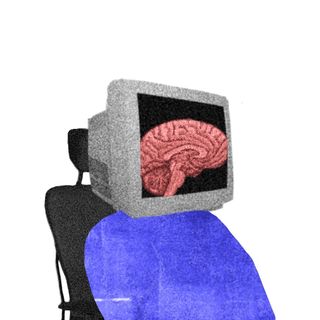Against an increasing recognition of animals as legal entities in their own right, a New York court ruled against a lawsuit that activists filed on behalf of a zoo elephant. The lawsuit claimed that the elephant, named ‘Happy,’ was imprisoned in a one-acre zoo exhibit and invoked the habeas corpus writ to challenge her confinement.
But the court ruled that Happy is “a non-human animal who is not a ‘person’ subjected to illegal detention,” Business Insider reported. The court claimed that there was no precedent to support the writ be invoked for non-humans, notwithstanding elephants are deserving of care and compassion.
The Nonhuman Rights Project, an advocacy group fighting for legal rights for nonhuman animals, who filed the petition, said that the entire Bronx Zoo’s area where Happy lives — 265 acres — is less than 1% of the space that elephants typically occupy in the wild. Juxtaposed against the fact that Happy is currently only confined within one acre makes her plight all the more damning. Project members thus advocated for Happy’s freedom of choice, that they say the zoo is denying her. “She has an interest in exercising her choices and deciding who she wants to be with, and where to go, and what to do, and what to eat,” an attorney told the Associated Press. At the heart of the issue is legally recognizing Happy’s sentience and intelligence, and thereby enforcing our moral responsibilities towards animals like her. Activists note how she became the first elephant to pass a self-awareness test in 2005, by repeatedly touching a white “X” marked on her forehead while looking into a mirror.
“I think it is crucially important, whenever considering the welfare of elephants living in captivity, that the individual elephant — her personality, her experiences, her relationships with other elephants and with the humans that care for her — must be considered paramount,” Joshua Plotnik, an elephant behavior researcher at CUNY’s Hunter College, told Insider.
Related on The Swaddle:
Ecuador Becomes the First Country In the World to Give Legal Rights to Animals
The fact that the petitioners called for relocating Happy from the zoo to an elephant sanctuary is, according to the court, proof that she cannot be considered a person in the full sense of the term. “The relief requested is not discharge from confinement altogether but, rather, a transfer of Happy from one confinement to another of slightly different form — an implicit acknowledgment that Happy, as a nonhuman animal, does not have a legally cognizable right to be at liberty under New York law,” the chief judge opined.
Moreover, the judge wrote that recognizing Happy as a person would have a “destabilizing impact” on the rest of human society. “… followed to its logical conclusion, such a determination would call into question the very premises underlying pet ownership, the use of service animals, and the enlistment of animals in other forms of work,” the majority decision read.
But the dissenting judges in the case disagreed, noting that Happy didn’t have to be a member of the homo sapien species to be able to invoke her habeus corpus right to challenge her cruel confinement.
Related on The Swaddle:
Madras HC Resolves Elephant Custody Dispute In Favor of Caretaker, Citing Their Emotional Bond
In the past other non-human entities had been granted legal personhood — corporations, and even idols. In 2010, the US Supreme Court noted that corporations have free speech rights — a decision that vastly impacted their influence in elections and campaign spending. Some scholars even note that we may expect to see artificial intelligence and machines being granted personhood faster than animals. As of now, in most jurisdictions, animals are “legal things” as opposed to “legal persons” — which makes them unable to claim wrongdoing before a court. But as scholars also point out, centuries ago there were many human beings themselves who were “legal things.”
Activists emphasize that legal personhood is not the same as being a human being. Environmental law is beginning to advocate for nature itself as a legal person — this would allow nature to hold legal rights that, if violated, can be taken up by a court of law. In 2017, for instance, New Zealand granted legal personhood to the Whanganui River — one that is sacred to indigenous communities and whose legal status was a battle that the Maori fought for for more than 160 years.
The Nonhuman Rights Project advocates for three groups of animals to be recognized as legal persons: the great apes, African and Asian elephants, and cetations (dolphins, orcas, and whales). Their petition to invoke writs on behalf of captive chimpanzees failed earlier, but the battle continues to raise questions about whose rights we recognize and respect.




